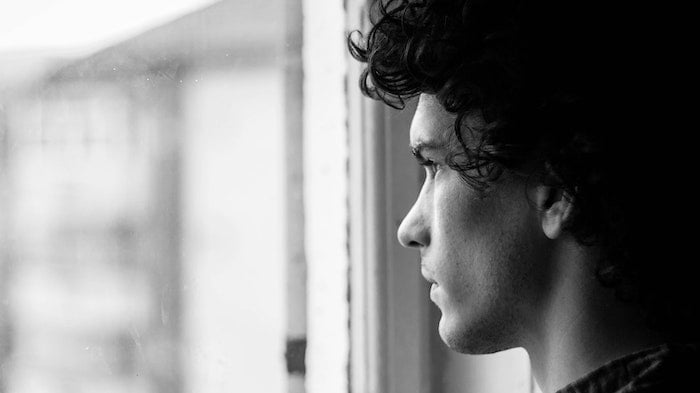Drug & Alcohol Rehab in Reigate
If you’re struggling with any kind of addiction, OK Rehab is here to help.
We have more details on the specifics of our processes below.
What we want to establish here is that we’re a judgment-free space, made up of people who’ve been through the same things you have. These are people who are likely to truly understand your experiences and want to assist your healing journey.
Right here and now, we also aim to answer a few of the most frequently asked questions about drug and alcohol rehab in Reigate.
There’s plenty of help out there if you’re struggling. All you need to do is get in touch with OK Rehab at 0800 326 5559 or via our website.
How Can I Access Drug & Alcohol Rehab in Reigate?

Drug and alcohol rehab in Reigate is actually fairly easy to access. All you need to do is get in touch with OK Rehab, via either our phone number or our website.
We’ll be able to give you instant advice and support. We’ll also be able to develop a treatment plan, if that’s something you feel you need.
Nothing in our process is too intense and you can stop at any point. We’ll start off with at least one conversation, to pin down the specifics of your situation and then we’ll develop a plan from there.
It’s likely that we’ll also ask you to complete a more formal assessment, just so we can really know your situation before we get started on your treatment.
What Are the Stages of Drug & Alcohol Rehab in Reigate?

Now that we’ve discussed the initial planning stages, let’s go into actual treatment in a bit more detail.
Drug and alcohol rehab in Reigate, or anywhere else, generally happens in three essential stages. These are detoxification, rehabilitation and aftercare.
Detoxification specifically aims to deal with the physical side of addiction. If you’ve developed a dependency, which the vast majority of people suffering from addiction have, we’ll try to break that down before we start any other treatment.
Your intake of drugs and/or alcohol will slowly be reduced and replaced with specifically prescribed medication. As a side note, this is also something that will almost definitely be different based on what you’re addicted to.
Rehabilitation itself is a combination of mental health treatments and more minor physical ones. It can of course vary based on where you go and what’s on offer there.
But generally, some of the most popular kinds of therapy and counselling offered at this stage are cognitive behavioural therapy, dialectal behavioural therapy, motivational interviewing, group therapy, contingency management, art therapy and music therapy.
Many places also offer workshops teaching various life skills, as well as support groups. These can really help you to connect with people in similar situations and will allow you to air all your feelings in a safe and confidential space.
Finally, yoga, acupuncture, massages and/or reflexology can often lift your mood. Those are the smaller scale physical treatments we were talking about earlier.
Aftercare is a transitional stage where you’ll continue to receive treatment while you adjust to your new, post-rehab life. The development of a good relapse prevention plan is also important at this stage, including:
- Any triggers or cravings and how to handle them
- Any lifestyle changes you might need to make post-rehab
- An exact plan for if you do relapse
- Details of anyone you’d want or need to contact in that scenario
There’s plenty of help out there if you’re struggling. All you need to do is get in touch with OK Rehab at 0800 326 5559 or via our website.
What Factors Will Influence my Treatment?

As every case of addiction is unique, every treatment plan is also personalised. The biggest factors that will influence your treatment are:
- What you’re addicted to – This is probably the most important thing to find out. Different substances can have vastly different effects, with alcohol falling into its own category. This probably shows itself most in withdrawal symptoms. Cocaine, for example, is known to cause periods of hyperactivity followed by a crash. This then means that it comes with psychological withdrawal symptoms, like anxiety and insomnia. Drugs like heroin, on the other hand, are known to cause more physical withdrawal symptoms, such as vomiting, nausea and diarrhoea. Both are highly unpleasant, but very different experiences.
- How long you’ve been addicted for – Addiction also generally worsens over time. This means that people who’ve been suffering from addiction for longer are more likely to have severe addiction issues. As a result, the length of time that you’ve been suffering from addiction for can have a huge impact on your treatment
- The level of support you currently have at home – This mostly influences the decision to go for inpatient or outpatient rehab, as well as aftercare and any life changes detailed in relapse prevention plans.
- Your previous treatment history – To know where you need to go, it’s also often important to recognise where you’ve been. We need to know what’s worked and what hasn’t worked for you in the past, so we can figure out what’s best for you now.
Will I Have to Go to a Residential Space for Treatment?

Not at all. Beyond differences in treatment, rehab is generally divided into two categories: inpatient and outpatient.
While inpatient is completed in a residential space (and is generally what you’d think of if you heard the term “rehab”), outpatient treatment happens at home, with visits to a residential centre.
The former is more intensive, as it essentially puts you in an environment where you’re surrounded by treatment. As a result, it’s the option most commonly recommended for those with moderate to severe dependencies.
People coming in from toxic home environments may also benefit from being away while they’re recovering. Overall, breaking out of the toxic habits, routines and lifestyles you’re currently in could be the key to moving forward and managing your addiction.
If you have a more mild issue and would feel more comfortable staying at home, however, outpatient treatment might be for you. Like everything else across drug and alcohol rehab in Reigate, it all depends on the specifics of your situation.
There’s plenty of help out there if you’re struggling. All you need to do is get in touch with OK Rehab at 0800 326 5559 or via our website.





